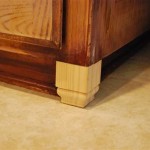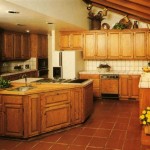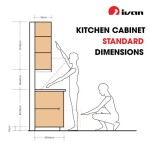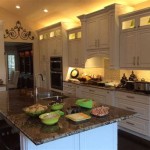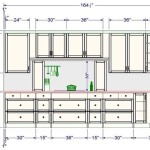DIY Antiquing Kitchen Cabinets: A Step-by-Step Guide to Bring Charm and Character to Your Kitchen
Antique kitchen cabinets exude a timeless charm and character that can instantly transform the heart of your home. While replacing old cabinets can be expensive, you can easily achieve the antique look with a DIY antiquing project. Here's a comprehensive guide to help you create stunning antiqued kitchen cabinets.
Step 1: Preparation
Begin by removing all hardware and cleaning the cabinet surfaces thoroughly. Use a degreaser to remove any grease or dirt. Sandpaper lightly to smooth any rough edges or blemishes. For a more distressed look, consider removing some of the existing finish using a chemical stripper.
Step 2: Base Coat
Apply a base coat of paint in a neutral color, such as white, beige, or cream. This base coat will provide a foundation for the antiquing process. Allow the paint to dry completely.
Step 3: Antiquing Medium
Mix an antiquing medium with a small amount of water. Use a brush or sponge to apply the medium unevenly over the painted surface. Focus on areas where the cabinet would naturally show wear and tear, such as the corners, edges, and raised panels.
Step 4: Glazing
Once the antiquing medium has dried, apply a glaze in a complementary color to the base coat. Use a soft brush to apply the glaze in thin, even strokes, blending it into the antiquing medium. This step adds depth and highlights the antiquing effect.
Step 5: Dry Brushing
Dip a stiff-bristled brush into a small amount of light-colored paint. Tap the brush on a paper towel to remove excess paint. Gently brush over the surface, focusing on the raised areas. This technique creates the illusion of aged, worn edges.
Step 6: Distressing
For a more distressed look, use a sandpaper or a sanding sponge to gently sand the edges and raised areas. This will remove some of the paint and reveal the underlying layers, adding to the antique character.
Step 7: Finishing Touches
Once you are satisfied with the antiqued look, seal the cabinets with a clear finish. Choose a finish that is appropriate for the type of paint used and will provide durability. Apply two or three thin coats, allowing each coat to dry completely.
Step 8: Reassemble
Reattach the cabinet doors and hardware. Consider using antique-style hardware or patinas to enhance the overall effect. Your antiqued kitchen cabinets are now ready to add a touch of timeworn elegance to your home.
Tips:
- Experiment with different antiquing mediums and glazes to achieve the desired effect.
- Practice on a test piece before applying the technique to the actual cabinets.
- Work in a well-ventilated area and use gloves when handling chemicals.
- Allow ample drying time between each step to ensure a professional-looking finish.
By following these steps, you can transform your kitchen cabinets into timeless treasures that will add warmth and character to your home for years to come.

Rescuing And Reviving A Glazed Distressed Kitchen Bella Tucker

Distressed Kitchen Cabinets How To Distress Your

Tired Of Your White Cabinets And Love The French Country Look Watch How She Does This

Diy Barn Wood Cabinets The Honeycomb Home

Kitchen Cabinet Refacing On A Budget Farm Fresh Vintage Finds Distressed Cabinets

How To Glaze Kitchen Cabinets Diyer S Guide Bob Vila

Here Have Some More Kitchen Inspiration Repurposed Antique Cabinets Victoria Elizabeth Barnes

Pin By Dorota Kriger On Inspirations For Smallwood S Cabin Distressed Kitchen Cabinets Rustic

Rescuing And Reviving A Glazed Distressed Kitchen Bella Tucker

Distressed And Antiqued Kitchen Cabinets
Related Posts


